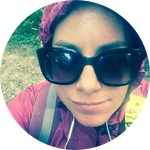About This Project
Soil fungi play a key role in structuring plant communities because they act as pathogens and mutualists. We know very little about the distribution of fungi and what environmental and climatic factors control the fungi range limits in the Eastern United States. Through the Forest Fungi Project over 500 samples have been collected by 175 volunteer participants. The next step of the project is to sequence the samples and determine what fungi our volunteers have collected.
Ask the Scientists
Join The DiscussionWhat is the context of this research?
Aided by the Forest Fungi Project, citizen science program for students, educators, and volunteer groups started in 2015. In our first year, 4-H groups, Master Naturalists, Master Gardeners, College and High School students, and volunteers at natural areas participated in this program.
Participants were guided to visit forests in their area to identify 10 tree species. Once tree species were identified, root and soil samples were collected and sent to our lab for molecular identification.
We have been collecting data for the last 2 years. Funding for Forest Fungi Project aims to analyze this citizen science data that was collected in order to show ecological trends along the eastern US.
What is the significance of this project?
Tree species ranges are predicted to shift northward in the next century, but these predictions do not consider how fungal interactions may promote or interfere with migration. Monitoring the fungal associations with tree species is critical to managing and understanding how environmental and climatic factors control their ranges across eastern US. Understanding the role of plant-fungal interactions for tree seedling growth and function, and how these interactions vary across climatic gradients could substantially increase predictions for how forests will respond to warming climates and provide a step toward developing management strategies for conserving biodiversity through restoration projects that incorporate soil microbial communities as well as plant species.
What are the goals of the project?
The goals for the funding of this project is to identify fungal species by sequencing samples sent by citizen scientists. DNA will be extracted and PCR will be performed from each participant's root and soil samples to determine individual fungal species. This data will be used in conjunction with climatic factors to determine if diversity and/or fungal species are impacted by climate.
The information will be presented to Forest Fungi Project participants. Once samples are identified a report will be sent back identifying the abundances, diversity, and specific species of their samples. To gain more of an understanding of the data, the ecological relevance will be explained to the participants.
Budget
This budget goals are to fund processing of 500 samples provided by, Forest Fungi Project, a citizen science program. The funds will be used for the molecular work of citizen science samples. Data results will include functional group (arbuscular mycorrhizal fungi, ectomycorrhizal fungi, endophytes, pathogenic species, and saprotrophic species) and the full taxonomy to the lowest level of identification that can be achieved. One round of sequencing costs $2150. PCR reagents and DNA extraction kits approximately $4 per sample.
Endorsed by
Meet the Team
Cassandra Allsup
I am a post-doctoral research fellow at the University of Wisconsin in the Plant Pathology Department. I am interested in how fungal communities promote or interfere with plant communities. My Phd dissertation involved the impact of environmental conditions on the mycorrhizal relationships of plants in a montane meadow. My post-doc research has centered on mycorrhizal relationships and how these relationships are controlled by climatic conditions.
Lab Notes
Nothing posted yet.
Project Backers
- 8Backers
- 3%Funded
- $90Total Donations
- $11.25Average Donation

